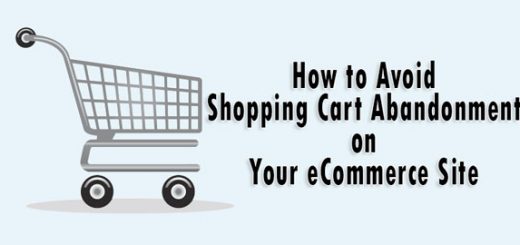5 Conversion Rate Optimization Tips for Small Businesses
Conversion rates will always be part of a business. You spend time building a product, you spend time polishing it, you spend time marketing, and that’s when potential customers start to roll your way, but not everyone becomes a permanent customer, so strategies and tactics need to be revised, and most commonly this is done through conversion rate optimization.
A business can be doing really well, but in terms of sales, there is always room for more. Quite often, our business module is not performing as good as we have anticipated because we haven’t put in place some solid strategies for optimizing our conversion rates on a global scale. The traditional way of optimizing conversion rates is about improving our website and the landing pages, which is what we will look deeper into in this post.
1. Utilize marketing widgets
One of the most popular widgets to come to the market in recent years has been the SumoMe widget. A versatile widget that offers a variety of ways to optimize your website for marketing purposes. You can use a feature called Smart Bar which will add a header bar to your website through which you can share free premium content with your visitors in exchange for their email address.
A feature called Heat Maps will allow you to record live website interaction from your visitors, giving you a chance to review those recordings and understand fully where a user starts to browse the website, and where it ends, and what could be done to improve the overall navigation experience.
2. Solve specific problems
More and more businesses are trying to solve more and more problems, when in fact trying to solve ten problems with one piece of software might actually be very dangerous for your business. WordPress advertises itself as a blogging platform, it doesn’t specify that it can be used as a shopping platform, or that it can be built into an auction site. It sells one message only, the fact that it is a blogging platform.
Your business should have the same ideology about your products. If you’re selling an email marketing platform, don’t try to sell integrated services for customer relationship management; they just don’t go together. It’s important that our sales pitch matches our actual product, making it easier for our customers to make the final decision.
3. A/B/C tests are invaluable
Testing different versions of your website still remains as one of the most rewarding and convenient ways of understanding how different versions of your site work for your users. Simple understanding of color psychology might change the way you use colors on your website forever.
The fact of the matter is, whenever we optimize our sites for conversions, we are constantly changing the way our website looks, the heading elements, the number of images we use, and yes even the choice of colors we have made, but how exactly do we know which changes caused an increase or a decrease in our conversions? The only way to find out is by implementing a solid A/B testing strategy.
4. Optimized content
Content marketing is an invaluable way of generating free exposure and ultimately leads. Having a good content marketing strategy, and understanding of content marketing itself, is essential to the success of your business growth. Content needs to be shaped around answers and questions, and before you sit down to write that big piece of content, perhaps you should first understand who your content is for:
- Who is this content being written for? What kind of customers are we trying to target?
- What particular problem this content is trying to solve? How will this content help our visitors to take actionable steps?
- What are we trying to achieve with this content? What’s the main call to action?
- Good content will be able to answer all of these questions and will naturally help a business to increase conversion rates by utilizing tactical answers and button placements.
5. Customer success
As a business, your job is to help your customer achieve a certain goal, to solve a particular problem. Beyond the basic use of your software/platform, they will be more than keen to explore tutorials and insightful content about the industry you’re working in, all yielding potential for your customers to succeed.
To help your customers achieve their own success, focus on the following:
- Customer Support — Be proactive about the support services you provide, especially to customers who may have less technical experience.
- Customer Engagement — Having a team of people who are with the customers from the pre-customer stage to customer stage can be an immense help in increasing your conversion rates. An online experience should be as seamless as physical experience.
- Customer Education — This is where we come back to content, as it can be a means of educating our customers about the latest updates, tips, insights, and offers. This includes email marketing.
- And if we can combine all of these tips together in a single strategic plan, we are bound to increase our conversion rates by a significant margin.
Via Blog Hostgator








